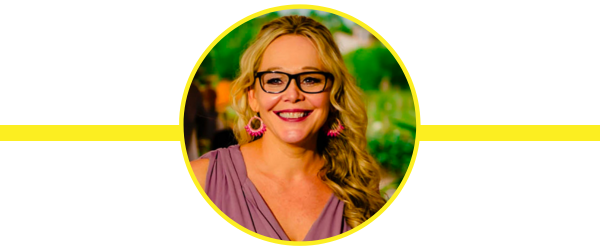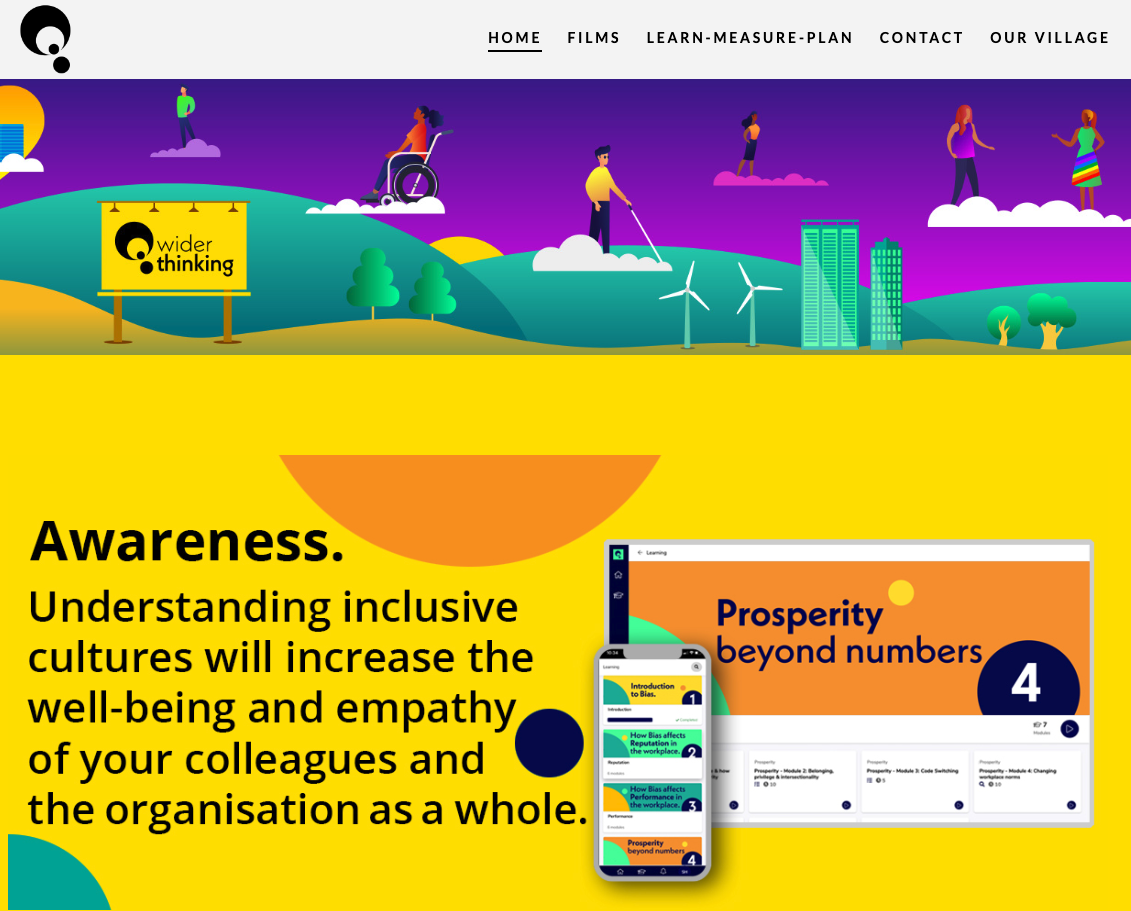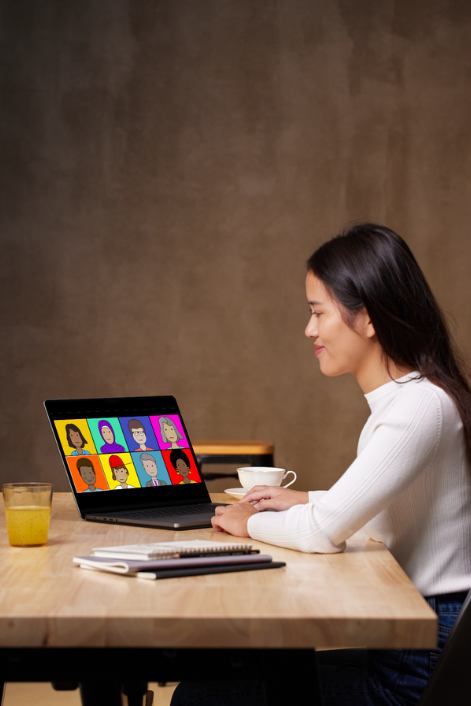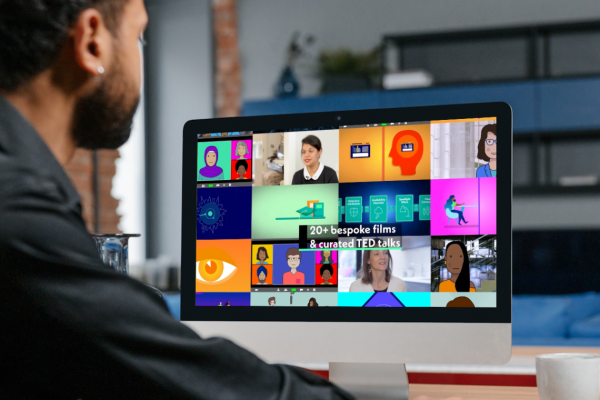Giving people a voice: an interview with Jacqui Barrett
After 15 years at the BBC, Jacqui Barrett understands the importance of producing content to “inform, educate and entertain”. Here, she talks about her award-winning business Wider Thinking, the importance of data and her drive to create EDI learning with a difference.

Wider Thinking provides content to raise awareness and understanding of EDI issues. What inspired that concept?
At that time, I had set up a creative agency called Salient Future, which creates explainer animations for quite complex or dry issues such as sustainability, financial inclusion, gender, and empowerment. As part of that, I had a conversation with a client about how people need to have a better understanding of unconscious bias. From that conversation, I created a pitch for that person’s organisation, a toolkit to help everybody in that organisation understand that concept. We realised we had to think beyond creating something that is just for one client – we needed to build something that is for whoever wants to have access. That was our pivoting moment. And of course, unconscious bias is just one element in the world of equity, diversity, and inclusion – we knew there was so much more content that needed to be unlocked. So we changed the whole business model into something bigger; we wanted to “blow the bloody doors off”.
How did you make sure the course content did that?
One of the many aspects of EDI is about blind spots, and how a diverse team is more innovative, creative, and productive. We knew we needed to practice what we preached, and so we brought in a diverse team to help us craft something: subject matter experts, user experience pros, creative people, learning psychologists, people who knew even more about EDI than we did. We wanted Wider Thinking training to be more than a tick box. We wanted people to really learn, to enjoy it, but to remember it too. We have designed it to be done in bite sized chunks to make it accessible – there is no ‘one and done.’ We also purposely built in pauses for reflection, so people stop, and let the ideas percolate.

What was your personal driver for wanting to do more in the EDI area?
I have always been passionate about giving people a voice. That has been a thread that runs through a lot of my choices, from fighting to get my mum the treatment and care she needed when she got Young Onset Alzheimer’s, to launching the #TabletsWithLove campaign to help hospital-based people communicate with loved ones during lockdown, to the work I’m now doing with Wider Thinking. I want everyone to be heard.
There is a definite theme of allyship there…
Lots of us have some sort of privilege. And that is not necessarily a bad thing, we just need to use it properly to help others.
How did your work at the BBC tie in with the theme of ‘giving people a voice’?
When some people learned where I worked, they would tell me they were against paying for a TV licence, because “X content doesn’t interest me.” I had lots of conversations about how there might be things on there that aren’t for you, but there will also be stuff that is for you. The point is that the BBC provides content for everybody. That has been drilled into me – there should be something for everybody. I suppose with my work on Wider Thinking, I continue to draw upon the BBC’s motto to “inform, educate and entertain,” and how when it comes to good content, those three not mutually exclusive.
Interested in Wider Thinking’s equity, diversity and inclusion learning platform? Contact us at info@fipp.com if you would like to be introduced to Jacqui Barrett.
What else did you learn from working there?
What I really loved about the BBC was not only the fact there was always a lot of diversity in the room, but also that we were always encouraged to “think big” – all of us. That was one of Greg Dyke’s mottos. It was also a collaborative culture; I was always in a room full of experts, always learning from cleverer people.
That’s a real contrast to the old system of having a middle-aged white boss who knows and dictates everything…
Absolutely. In commissioning meetings we would speak to people from the Natural History unit, or people from science, or from documentaries. It was just wonderful and inspiring – being surrounded by people cleverer than you are is how you make brilliant television, how you get millions of viewers for your content. It’s an approach we’ve taken when pulling together the team for Wider Thinking. You have to listen to more knowledgeable people, as that’s how you get the job done.
What have you learnt – or unlearnt – throughout this experience?
I am learning that you have to continuously learn, especially in the world of EDI. I’m learning all the time. I want to make sure that the content that we have stays relevant as conversations evolve. For example, when we first launched, working from home was a new concept. One of the questions we would ask people was about the pros and cons. Now in 2024, it’s not about ‘working from home’, it’s about ‘flexible working’ – hybrid working, job shares, part-time hours, shift work – and how that makes the workplace more accessible. That has been a learning journey for me and has helped evolve Wider Thinking.

What are you hoping the impact of Wider Thinking will be?
Ideally, that EDI gets to the top of the agenda and stays on that agenda. That is a challenge. I also want to see more accountability; there is a lot of performativity or tokenism, with organisations showboating about their EDI – but what are those organisations really doing to get leadership to be more diverse? A lot of organisations are still bringing in diversity for more junior decision-making roles, but we want and need more diversity right up at the top, in senior leadership.
What else would you liked people to be more aware of?
That EDI is not just about gender, or just about ethnicity. It is deeper and broader. There are people with disabilities, neurodiversity, social EQ, economic mix, age. We have also found that high-quality training, because of budgetary or logistical constraints, is often just for senior staff – and that is not inclusive. That’s why we purposely made this programme scalable for everybody in the organisation, from the receptionist to the CEO – so that everybody knows what allyship is, what groupthink is, where blind spots might be, what the difference is between equity and equality. It’s not typical training, it’s self-discovery. We want everybody to have an enriched understanding of their own behaviour, and how we all impact others.
As part of Wider Thinking training, you run anonymous surveys with the company employees. How important is this kind of data in EDI?
As an organisation, you should be striving for the best possible data. Data is only good when it’s as honest as it can be. You need consistent valid metrics and measurement around EDI, otherwise there is no accountability. The anonymous data we collect from employees is invariably different to that collected by HR departments – because we’re an independent third party, people feel safer. Your internal survey may be anonymous, but people still worry that if they say they have ADHD, or that they are gay, that it will come back to them. I feel really passionate about the data; it can provide you with statistical evidence as to how to drive your policy, what your strengths and weaknesses and blind spots are. If no one in your organisation is neurodiverse, why is that? What are the barriers? On lots of the questions, there is a ‘prefer not to say’ option – if quite a high percentage of people check that, what does that say about your company?
What does it say?
That you’re diverse, but you’re not being very inclusive. EDI data isn’t just abstract – it drives everything. It maps where you are today so that you can properly evaluate your efforts tomorrow. Instead of making assumptions about your people, you have actual data to help plan where to put your energy, time, and money. People complain about quotas, but we need quotas – it comes back to accountability. You need numbers to understand what is going on.
There has been a lot of talk about how boosting ED&I helps the bottom line…
The world of work has changed dramatically. There has been an increase in ED&I accountability and an expectation around that accountability. This is why tokenism or being performative can be damaging; your reputation as an organisation has a value and if people perceive tokenism, it decreases that value. With Wider Thinking you are demonstrating that you are taking it seriously, that you are accountable, that you are on this journey. Your organisation can proudly say to your clients, to your supply chain, to your competitors, to the talent that you want to attract and retain, that the work you did in 2024 opened up all these conversations and drove policy change. That will ultimately help your bottom line.
What are you proud of?
The Television Access Project (TAP) we have been working on – which ensures access provision for deaf, disabled, and neurodivergent people – has been fantastic, because it has got key British broadcasters and streamers working together to make the industry more accessible. The media industry can be quite a privileged place to be; journalism is hard to get into, as is television. There is a lot of work to be done, and projects like TAP is grabbing the bull by the horns and genuinely helping to address that. It goes back to my point about the BBC, and “thinking big.” Collectively we can change the world. We are stronger together.
Interested in Wider Thinking’s equity, diversity and inclusion learning platform? Contact us at info@fipp.com if you would like to be introduced to Jacqui Barrett.








